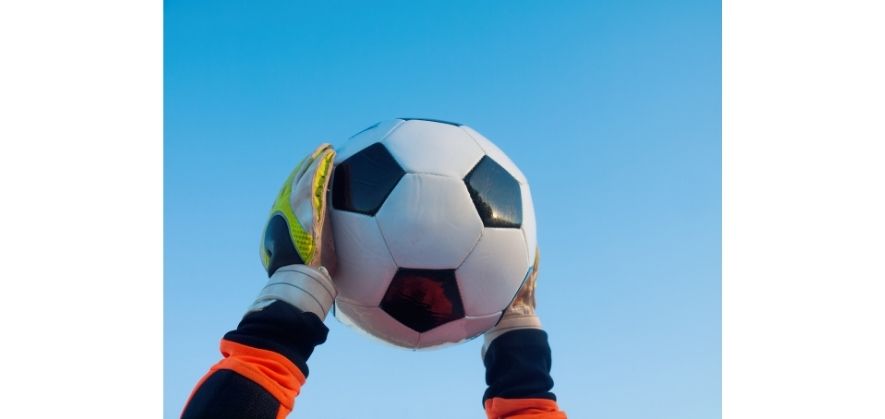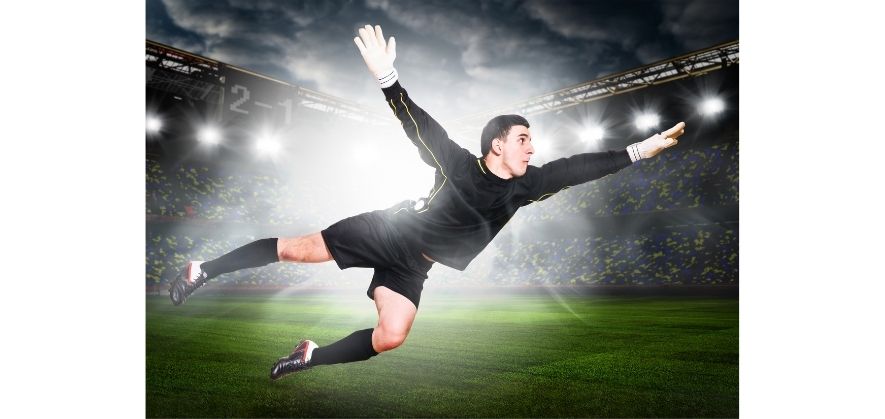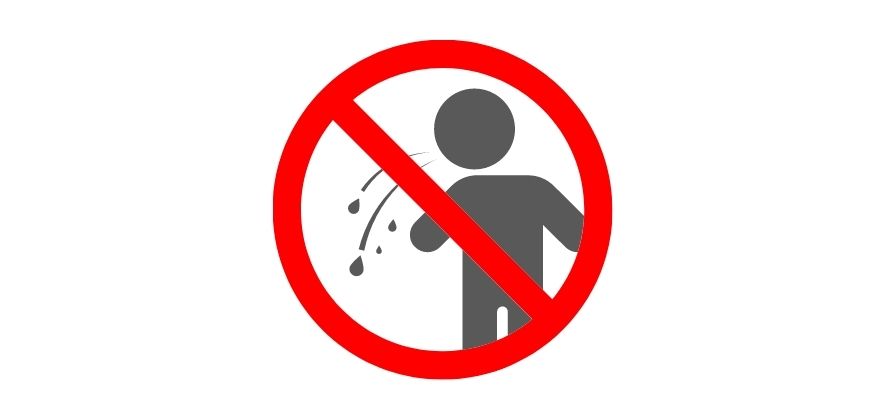Disclaimer: Soccer Whizz is a participant in the Amazon Services LLC Associates Program, an affiliate advertising program designed to provide a means for sites to earn advertising fees by advertising and linking to Amazon.co.uk (source: Section 5). As an Amazon Associate I earn from qualifying purchases.
Goalkeepers in the sport of soccer have various unspoken habits that bring about confusion to viewers across the globe.
The act of spitting on gloves may seem no different than a mere habitual action but past events state otherwise.
Former England Goalkeeper – Joe Hart – always seemed to spit on his gloves before facing set pieces which got me wondering why he took it so seriously.
This article will unearth the hidden meaning, benefits and potential drawbacks behind spitting on gloves as well as give soccer fans an insider’s viewpoint on the not so official technique that can have a significant impact on the game.
Let’s begin with a quick answer for the overall topic at hand…
Goalkeepers spit on their gloves to essentially gain more grip on the ball. This is done to make it easier for the keeper to catch the ball as well as reduce the chances of the ball being parried into the path of the opposing team.
With that out of the way, let’s examine the reasons for this peculiar habit in greater detail.
Reasons for goalkeepers spitting on their gloves
There are a number of motivations behind goalkeepers giving their gloves a saliva wash down.
Read on to find out more.
1. Extra grip

In order to extract that extra grip, the palm of the gloves made out of latex need to be slightly wet.
Latex, in simple terms, is a foam comprised of hundreds if not thousands of holes that cover the surface of the palm. When the latex is dry, these microscopic holes become hard and frail which makes it difficult for the holes to expand.
As a result of the increased friction between the palm of the gloves and the ball, the durability of the gloves is compromised and that’s why you may notice gloves with cracks tend to provide less protection for your hands.
On the other hand, wet latex allows the tiny holes to expand easily and become more flexible which in turn means they are less likely to crack.
The added benefit of a flexible surface is they can morph shapes much easier and compliment the shape of the glove to increase the chances of catching the ball.
A hard and stiff glove would not be able to have the same effect simply because it lacks the freedom of space to mould itself into the shape of the glove. It would be almost like hitting a brick wall and the ball would therefore just bounce right off.
Check out the video below for an example of how modern glove manufacturers are taking advantage of the physical properties of latex to design gloves adept at retaining moisture:
If you’re interested in buying a pair of great gripping goalkeeper gloves, I’d recommend the Renegade GK Eclipse Gloves with contact grip latex.
They have some of the highest grip levels and are efficient for wear in both wet and dry conditions.
2. Superstitious belief
Another reason goalkeepers spit on their gloves is due to superstitious beliefs that they take pride in that can have an impact on the morale of the team.
The evolution of soccer over the decades has brought about a new found focus on not only the physical aspect of the game but the mental/psychological battles that take place on the pitch.
Most up and coming goalkeepers learn from observation and it’s therefore easy to pick up this routine especially when analysing the habits of older and more experienced goalkeepers.
This generational learning curve is clearly evident today with Leicester City’s goalkeeper – Kasper Schmeichel – who admitted that he followed in his father’s footsteps in the dying moments of his most recent penalty save.
Psychological tactics can also work against opposing teams as it mounts pressure on the player readying themselves to take the set piece.
Penalty takers for example are constantly trained on how to take cool and composed penalties however this may not always go to plan especially in fully packed stadiums with fans heightening the pressure.
Just the act of the goalkeeper spitting on their gloves before this crucial moment in the match can send a signal of overbearing confidence and determination that they will save it which can throw off even the most collected players.
3. Conditioned reflex reaction

Goalkeepers spitting on their gloves may also be a result of a conditioned reflex reaction in response to a sprawling save that they just made.
Teammates regularly feed off this energy which can consequently improve the performance of the team in match defining moments as that reaction could act as a catalyst for a positive reaction from the team.
Is spitting on goalkeeper gloves bad?
After going through the benefits of spitting on gloves, this habit may start to seem like a pre-determined method for obtaining extra grip.
However, it does have its drawbacks.

To begin with, spitting on gloves frequently will erode the glove latex and gradually diminish the permanent grip of the gloves.
The average PH of saliva is relatively acidic so even though in the short term you’d be able to achieve extra grip, in the long run it starts to become detrimental to the durability of the gloves.
Without grip its practically impossible to get any grasp on the ball as it will simply slide off and from a goalkeeper’s standpoint this is a situation they cannot afford to compromise with.
On that same note, you may wonder why goalkeepers aren’t bothered by the long term durability of their gloves.
Well, this is simply because most professional goalkeepers have sponsorships and contracts with Nike, Adidas and similar sports firms that will supply them with their gloves. As a result, they don’t need to worry about the durability of their gloves as they could simply get a new pair after a couple of matches or even after each match.
On a more unhygienic note, spitting on gloves can make them retain foul odors and smell like they’ve been in the trash for weeks.
When bacteria from saliva is broken down, it releases molecules to compensate for the abundance of proteins and these molecules contain high concentrations of foul odorants.
Smelly gloves aren’t exactly ideal to use in match type conditions and naturally you’d be forced to replace them.
How to enhance goalkeeper glove grip without spitting on them
You can do a couple of things if you don’t want to use your own saliva to provide your goalkeeper gloves with the moisture that they need.
Firstly…
Use a goalkeeper glove balm
In order to enhance goalkeeper glove grip without spitting on them, you can use a goalkeeper glove wash.
Check out gloveglu on Amazon, because that is a great product to make use of.
This handy piece of gear will retain the moisture and stickiness ideal for extra grip, as well as remove any dirt particles on the surface to keep your gloves clean and moist.
Simply apply the wash before or after a game and it will extend the durability of the glove.
Or alternatively…
Apply water instead
Another way to improve glove grip is by using water as the lubricant instead of spit.
Simply take a water bottle and pour a bit of water on both gloves then wipe them down together to get rid of any excess moisture. After that rub them together to ensure they’ve gotten that extra grip.
Closing thoughts
All in all, goalkeepers spit on their gloves to primarily get more grip on the ball when claiming oncoming shot attempts. In addition, it is also done as a result of the superstitious belief that will provide a psychological boost when it comes to on-field performance, as well as the action just being habitual reflex reaction.
This practice has been going on for many years and its clear to see that it has become engrained in goalkeepers from generation to generation.
I believe it was important to cover this topic as it sheds light on the hidden techniques exploited in modern day football that can have a significant impact on the result of a game.
Having said that, this article can benefit young and aspiring goalkeepers learning the art of goalkeeping by providing tips on the benefits of spitting on gloves as well as other alternatives that are proven to be more effective at enhancing grip.
Soccer fans across the globe also gain knowledge into the inner workings of the sport and a better understanding of why players do what they do on the pitch.
And now that you as the reader understand why this act is done, go ahead and buy yourself the best goalkeeper gloves you can find!
If you enjoy the content that I create and would like to buy me a coffee, then I’d really appreciate it!
Any money that I earn through this donation will be re-invested into more content for this website.
Additionally, by sending in a donation you’ll also receive a copy of my recently released 190+ page eBook on Soccer Ball Care, as well as be subscribed to our mailing list where you’ll be regularly informed on the latest developments concerning the Soccer Whizz blog.
- Future Icons: Europe’s Emerging Midfield Maestros Set for Glory - December 4, 2023
- Kickstarting a Revolution: How Soccer Transformed the United States Over the Last Four Years - October 7, 2023
- 4-1-4-1 Soccer Formation [Analysis] - September 23, 2023

